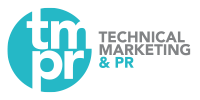Facebook: What does it mean if you’re B2B?
Facebook is another potential channel to reach your customers or prospects (or employees)… so the answer lies in whether these people are engaged with Facebook more so than any other social media channel. If you decide ‘yes’ then you need to then make sure you have access to content and the resource to manage this content – if these building blocks are in place then read on for a few best practice B2B tips…
Facebook Page
This is your opportunity to officially promote your company, where you can take ownership of your online reputation via a ‘Page’. Consider your Facebook Page as your second website, while you can use it as a tool to drive traffic to your corporate website, your Facebook Page will allow you to connect with your audience in real-time. Use it to write targeted posts and to showcase your employees and the work your business does day-to-day.
Drive sales
If you’re using your Facebook Page to share timely and relevant content, there is a probability that you will be able to convert some of your ‘Likes’ into new business leads. You can either do this organically via sharing regular updates and hoping they convert to sales, or take advantage of Facebook Ads. These will enable you to increase your reach and target the right audience, and you can set a budget that meets your business’ needs. You can also use Facebook Insights to provide you with valuable information about how your audience is engaging with your page, enabling you to better tailor your adverts with the aim to drive sales.
Customer testimonials
Facebook allows you to host customer testimonials on your page, so encourage your best brand advocates to post something on your behalf. This will make your page stand out to first-time visitors – and even cheeky competitors having a snoop! With permission these testimonials can be a rich source of content you could use for case studies or in media interviews and press releases
Share videos
Facebook isn’t just about having a text heavy page, bring it to life with videos, in doing so you can capture your audience’s attention for longer. You can either upload exclusive video content or link directly from a YouTube account. You can use it to show features of your products, or have a designated in-house ‘Vlogger’ who can talk briefly about best practice or industry topics.
Engage with the Facebook community
Through your Facebook wall you can post content that will be of interest to your advocates, but also encourage them to communicate with one another. Ask them for feedback on latest products, or provide sneak previews on new products. Be a useful resource to customers, find out any concerns – be those general industry concerns or specific to you – and address them if you can. Don’t leave them to fester; as you want to be seen as a solution provider, this will build empathy and trust with your audience.
As the above points cover, Facebook can be a valuable marketing tool and a current way of connecting with your target audience and beyond. If you’re thinking of making the step and using Facebook as another communications channel, ensure that you have the resource to manage it efficiently. A dormant or barely used page isn’t attractive to customers or potential clients, and if customers are using it as a point of contact for customer service make sure you respond in a timely and professional manner.
Above all have some fun with it, Facebook is a great opportunity to show your brand personality and normalise your brand to the man on the street – keep it professional – but don’t be afraid to show that you’re human too!
